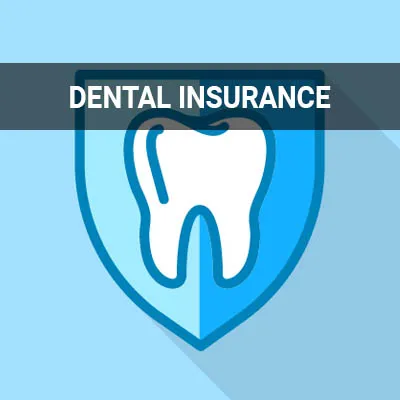How Does Dental Insurance Work Aberdeen Township, NJ
If you are in the market for dental insurance, you may be curious about how it works. Dental insurance plans come straightforward, and you can make an informed decision when selecting the right plan for your dental needs.
When you enroll in a dental plan, you enter into an agreement. Individuals who purchase a dental plan must pay monthly insurance premiums, along with any additional copays and deductibles that may be a part of their particular dental plan. The insurance company will pay your dentist for services covered at an agreed-upon reimbursement level.
To determine whether or not Moskowitz and Penner Dental Arts accepts your dental insurance, call us at (732) 583-3373 to learn more. We are proud to serve patients in Aberdeen Township and the surrounding area.
Shopping for Dental Insurance
When choosing dental insurance, many people want the insurance plan to include their current dentist. Most providers have websites with a directory of dentists within their network.
One can visit their dental insurance carrier's website to search for their dentist's in-network status. If their dentist is not within the network, patients can shop around for a different dental insurance provider. Alternatively, they can select a dentist in-network that accepts their insurance.
“When choosing dental insurance, many people want the insurance plan to include their current dentist.”
Coverage for Dental Procedures: Types of Coverage Available
Plenty of options exist for dental insurance. This can be good, as plans cater to a wide range of needs. The types of coverage, premiums, and deductibles can vary — which can be confusing.
Consider the following when choosing dental insurance:
Find Out What Plans are Available in Your Area.
Start by narrowing your search to dental plans available in your city and state. Some insurance companies do not offer coverage throughout the United States, so keep things simple by comparing plans available in your area.
Look for a Plan that Has Many Dentists and Dental Practices.
Whether one currently has a preferred dentist or not, it is essential to consider having more than one option. An insurance company that covers many dentists and providers typically remains in good financial standing with a solid reputation — meaning that claims will likely be reimbursed on time.
Consider All Costs.
When searching for a dental insurance provider, patients should first consider the monthly premium and deductible. They should also consider the amount they will have to pay out-of-pocket for dental services (copays) before insurance kicks in.
The maximum annual limit is also essential to note. Most insurance companies put a cap on the amount they will reimburse each year. Once this cap has been reached, all the patient's dental expenses will be out-of-pocket. Patients should pay particular attention if they have extensive dental issues that need to be addressed.
Most routine dental treatments remain covered under dental insurance, but many plans do not cover "extras," such as whitening or sealants. Check with the insurance carrier to learn about covered procedures. Also, be aware that some insurance plans have required waiting periods — leaving patients waiting a long time for coverage on specific procedures — especially the more expensive ones.
“Plenty of options exist for dental insurance. This can be good, as plans cater to a wide range of needs.”
Purchasing Dental Insurance
Purchasing dental is a personal issue and depends on how much dental work the patient needs and how many family members they have. Generally, the more dental work required and the more family members, the more value for the month.
The typical dental insurance plan covers preventive care: checkups and cleanings at 100% (no deductible), basic procedures (e.g., fillings and extractions) at 70%, and major procedures (e.g., crowns, bridges, and root canals) at 50%. Some procedures may be considered basic by one carrier and major by another, so patients must speak with their insurance carrier before getting dental treatments to understand the breakdown of costs and coverage.
Like health insurance plans, dental plans typically have a deductible — the amount one has to pay out of pocket each year before the plan starts to cover its portion of costs. Most plans cap the total amount they will pay for care per plan member per year. Any dental expenses over the plan's cap (or maximum) become the patient's responsibility.
“Purchasing dental is a personal issue and depends on how much dental work the patient needs and how many family members they have.”
Check out what others are saying about our dental services on Yelp: How Does Dental Insurance Work in Aberdeen Township, NJ
Family & Individual Dental Insurance
Oral health coverage does not come as "one size fits all." Some may need insurance only for themselves, whereas others may be in the market for insurance for the entire family.
Patients can purchase individual dental insurance plans through the marketplace (U.S. government) when selecting their health insurance coverage or directly purchased through the carrier. Premiums for individual plans tend to be lower than family plans as only one individual is covered.
Family dental insurance plans cover the entire family and typically have higher premiums as more people seek coverage. Most family plans have allowances for two exams annually per plan member. Patients should find the right blend of insurance coverage that matches the entire family's oral care needs while still being affordable.
“Oral health coverage does not come as ‘one size fits all.’ Some may need insurance only for themselves, whereas others may be in the market for insurance for the entire family.”
Questions Answered on This Page
Q. How can I know if my dentist accepts my insurance?
Q. What should I look for when choosing dental insurance?
Q. Is dental insurance worth it?
Q. What is the difference between family and individual dental insurance?
Q. What options are there for dental insurance?
People Also Ask
Q. What factors should people consider when choosing a dental insurance plan?
Q. What is a health savings account?
Q. Who is the billing specialist?
Q. Why is preventative care important? How can it save you money?
What to Consider When Purchasing Dental Insurance
With so many options available, it can be difficult for patients to know which dental insurance plan fits their needs best. In many cases, the plan offered by their employer or professional association represents the best fit.
It may be helpful for patients to talk to their dentist to see what plans their office recommends and accepts. If patients do not currently have a dentist, they will want to look for a plan that provides the coverage they need at an affordable price. If they know they need major dental work, they should look for a policy with a high spending cap. If they have minimal dental needs, selecting a partial coverage plan may be the most fiscally responsible decision.
“It may be helpful for patients to talk to their dentist to see what plans their office recommends and accepts.”
Frequently Asked Questions
Q. What is the best dental plan for me?
A. You should consider many factors when choosing a dental plan. Examine each member of your family's coverage needs and evaluate which plan(s) offer financial feasibility. Look at all costs, including premiums, deductibles, and copays. Carefully read the plan's coverage for services to ensure your desired level of care.
Q. What should I look for when shopping for dental insurance?
A. You should consider many factors when shopping for the right dental insurance plan. First, evaluate your individual and family needs and take a look at your budget. Examine the different kinds of dental plans available in your area and their coverages. Consider looking at the network size, dentists included in the network, and applicable waiting times and restrictions.
Q. Why is dental insurance worth the cost?
A. Dental care influences not only oral health but also overall physical health. Dental insurance can reduce the financial burden of having dental care, including basic and routine costs such as cleanings and exams. Dental insurance also makes minor and major procedures more affordable, so you do not delay much-needed treatment.
Q. Can I be covered under more than one dental plan?
A. It is possible, but it is likely that one of your plans will be considered your primary plan. Your primary plan will pay toward your dental care first, while any additional plans will pay the remaining portion. Together, the plans cannot pay more than 100% of the treatment cost.
Q. What kind of dental plans are there?
A. Dental insurance plans are similar to health insurance plans in that they are typically categorized as either Indemnity (such as HMO plans) or managed-care plans (such as PPO plans). The major differences lie in the patient's choice of dental care providers, out-of-pocket costs, and how expenses are paid. While Indemnity plans offer patients a wider range of providers, they also only reimburse the patient for their share of the costs for covered services.
Dental Terminology
Call Us Today
If you have questions about dental insurance options or whether or not a service is covered, call Moskowitz and Penner Dental Arts in Aberdeen Township at 732-583-3373 to learn more.
Helpful Related Links
- American Dental Association (ADA). Glossary of Dental Clinical Terms. 2023
- American Academy of Cosmetic Dentistry® (AACD). Home Page. 2023
- WebMD. WebMD’s Oral Care Guide. 2023
About our business and website security
- Moskowitz and Penner Dental Arts was established in 1982.
- We accept the following payment methods: American Express, Cash, Check, Discover, MasterCard, and Visa
- We serve patients from the following counties: Monmouth County
- We serve patients from the following cities: Aberdeen Township, Matawan, Keyport, Morganville, Holmdel, Middletown, Lincroft, Colts Neck, Marlboro, Manalapan, Freehold, Tinton Falls, Little Silver, Fair Haiven, Rumson, Shrewsbury, Old Bridge, and Hazlet
- Norton Safe Web. View Details
- Trend Micro Site Safety Center. View Details
Back to top of How Does Dental Insurance Work










